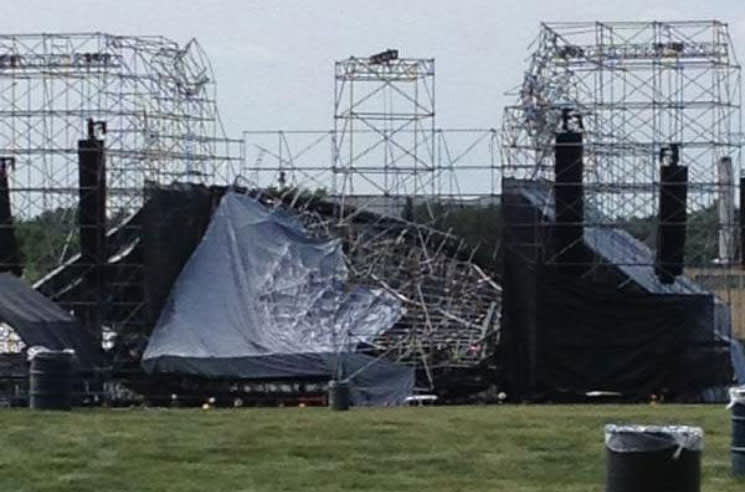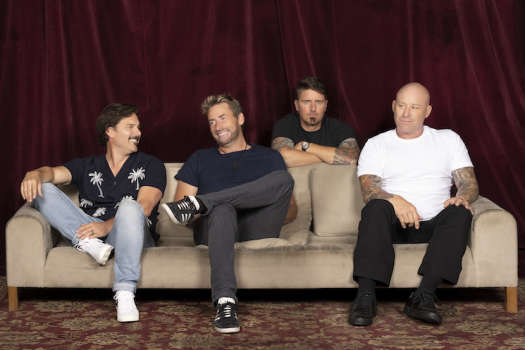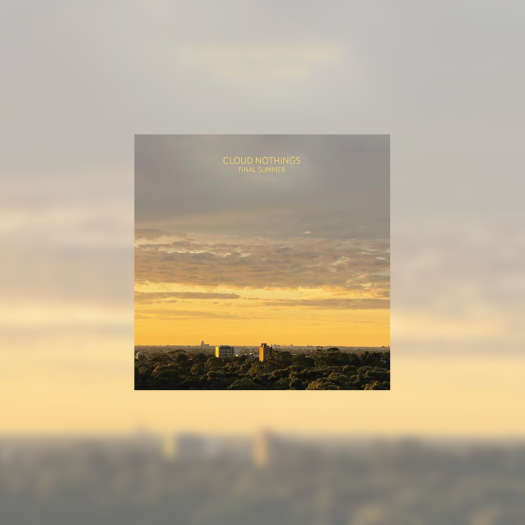The corner's inquest into the death of Radiohead drum tech Scott Johnson has now concluded, with the jury issuing a series recommendations so that a fatal stage collapse like that at Toronto's Downsview Park never happens again.
Chief among those recommendations given by the jury today is that companies that build temporary stages for events — such as the 2012 Radiohead concert that took 33-year-old Johnson's life — should undergo licensing, and the riggers who work on performances venues in Ontario should go through a certification process, much like what's currently in place for electricians, the Canadian Press reports.
The jury in the coroner's inquest went on to issue 26 other recommendations aimed at preventing similar deaths in Ontario. And while the recommendations are not legally binding, the late drum tech's father Ken Johnson said he would remain vigilant that the recommendations would not be ignored. Johnson also suggested Radiohead would ensure the recommendations are put into action, CP reports.
"I think it just brings some closure, at least," Johnson told reporters following the inquest's conclusion today. "There's hardly a month gone by in the last seven years where I'm not involved in some dialogue about Scott and what's happened, so I quite look forward to perhaps not having that dialogue."
Other recommendations include the creation of a provincially funded and permanent organization that would examine the processes involved in the live performance industry, including the construction of temporary stages. This group is to be established by December and to include Ken Johnson, as well as other experts in the live entertainment field. The organization would be in charge of addressing the various issues raised during the inquest, such as a requirement that a trained supervisor always be on site while temporary stages are constructed.
Another recommendation is to change the building code, as well as occupational health and safety laws, as they relate to temporary stages. This includes the requirement that all temporary stages be designed by an engineer and inspected by one before the structure is ever used.
As CP points out, there are also various recommendations aimed specifically at engineers, such as making sure there are educational opportunities for those working in the field of temporary stages.
On the last day of testimony at the inquest on Tuesday (April 9), Johnson said "the levels of incompetence" that led to the fatal stage collapse that took his son's life was "clearly staggering."
As previously reported, the inquest in Scott Johnson's death had been ongoing since March. While the Ontario Ministry of Labour brought charges against promoter Live Nation, contractor Optex Staging and engineer Domenic Cugliari in 2013, multiple delays in the case led to all 10 charges surrounding Johnson's death to be stayed. The decision came as a result of an Ontario judge ruling the case had taken too long to come to trial and thus violated judicial time limits and the defendants' rights.
This lack of any sort of legal resolution led to a very critical reaction from Radiohead, who repeatedly expressed outrage over the incident.
At the band's Toronto concert last summer, frontman Thom Yorke told the crowd, "We wanted to do a show in Toronto, the stage collapsed, killing one of our colleagues and friends. The people who should be held accountable are still not being held accountable in your city. The silence is fucking deafening."
The inquest heard the testimonies of 25 witnesses, including Radiohead drummer Philip Selway and various Optex employees and engineers. Optex owner Dale Martin testified that the stage design called for a truss component that Opex did not have, saying the company had known about the issue for years and that engineer Cugliari had been alerted to the problem repeatedly. Cugliari has disputed that claim.
Chief among those recommendations given by the jury today is that companies that build temporary stages for events — such as the 2012 Radiohead concert that took 33-year-old Johnson's life — should undergo licensing, and the riggers who work on performances venues in Ontario should go through a certification process, much like what's currently in place for electricians, the Canadian Press reports.
The jury in the coroner's inquest went on to issue 26 other recommendations aimed at preventing similar deaths in Ontario. And while the recommendations are not legally binding, the late drum tech's father Ken Johnson said he would remain vigilant that the recommendations would not be ignored. Johnson also suggested Radiohead would ensure the recommendations are put into action, CP reports.
"I think it just brings some closure, at least," Johnson told reporters following the inquest's conclusion today. "There's hardly a month gone by in the last seven years where I'm not involved in some dialogue about Scott and what's happened, so I quite look forward to perhaps not having that dialogue."
Other recommendations include the creation of a provincially funded and permanent organization that would examine the processes involved in the live performance industry, including the construction of temporary stages. This group is to be established by December and to include Ken Johnson, as well as other experts in the live entertainment field. The organization would be in charge of addressing the various issues raised during the inquest, such as a requirement that a trained supervisor always be on site while temporary stages are constructed.
Another recommendation is to change the building code, as well as occupational health and safety laws, as they relate to temporary stages. This includes the requirement that all temporary stages be designed by an engineer and inspected by one before the structure is ever used.
As CP points out, there are also various recommendations aimed specifically at engineers, such as making sure there are educational opportunities for those working in the field of temporary stages.
On the last day of testimony at the inquest on Tuesday (April 9), Johnson said "the levels of incompetence" that led to the fatal stage collapse that took his son's life was "clearly staggering."
As previously reported, the inquest in Scott Johnson's death had been ongoing since March. While the Ontario Ministry of Labour brought charges against promoter Live Nation, contractor Optex Staging and engineer Domenic Cugliari in 2013, multiple delays in the case led to all 10 charges surrounding Johnson's death to be stayed. The decision came as a result of an Ontario judge ruling the case had taken too long to come to trial and thus violated judicial time limits and the defendants' rights.
This lack of any sort of legal resolution led to a very critical reaction from Radiohead, who repeatedly expressed outrage over the incident.
At the band's Toronto concert last summer, frontman Thom Yorke told the crowd, "We wanted to do a show in Toronto, the stage collapsed, killing one of our colleagues and friends. The people who should be held accountable are still not being held accountable in your city. The silence is fucking deafening."
The inquest heard the testimonies of 25 witnesses, including Radiohead drummer Philip Selway and various Optex employees and engineers. Optex owner Dale Martin testified that the stage design called for a truss component that Opex did not have, saying the company had known about the issue for years and that engineer Cugliari had been alerted to the problem repeatedly. Cugliari has disputed that claim.




